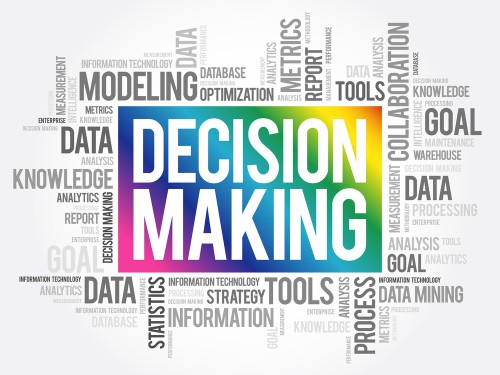How To Improve Decision-Making Skills

These steps will help you improve your workplace decision-making abilities.
1. Begin by narrowing down your choices
You'll feel less overwhelmed when you are faced with fewer choices. It's easier to pick between two ideas than between 10 options, for instance. You should eliminate impractical or unrealistic options, so you only have to choose ones with the highest potential.
2. The next step is to assess the significance of a decision and how long it takes.
Before you put too much effort on one decision, rate each decision on its significance and then decide how much time you will spend on it. It's not wise to devote a entire day deciding on things that are of little importance for example, the brand of ink to order for your office printers. But more significant decisions should receive ample time. You can determine how long you'll give each decision prior to beginning the process of making decisions. This will ensure you're making the right decisions and prioritizing those that are the most important ones.
3. Also, you should be as knowledgeable as possible
You'll be better able to make educated decisions by doing more research and gather more information. Find out what factors play a role in your decision, as well as any other details you'll need to feel comfortable and knowledgeable in your decision-making process. If you're trying to decide if to hire just one or two employees, make sure you spend the time to study each. What kind of know-how do they have? What was their major and where did they study? What have their references said about their work? It is worth asking the company for a sample of their work, so you can compare the samples and gain a better understanding of their capabilities. Check out the post right here to get additional resources on random group generator.
4. Next, you should be careful not to make emotional decisions
Decisions based on emotions can lead to poor choices and impulsiveness. You should not be emotionally attracted to an decision or issue that you have to make. Instead, be objective and think about the facts. Look at the facts surrounding the decision rather than how you feel about it. And don't hesitate to ask for extra time (if possible) to ensure that you're as objective as you can be.
5. Then, think about the pros and pros and
It is crucial to know both the possible benefits and costs of a decision prior to you make the decision. This will make you feel more comfortable and well-prepared. Each decision has at least one disadvantage. For instance, if you are trying to decide whether or not to introduce daily catered lunches for your office, one of the cons is likely to be the price of these lunches, while a pro would be the fact that it will boost morale and satisfaction of employees. If there is a concern about the amount of food served for your organization You can decide not to go through with this decision or to alter the decision (e.g. only offer catered lunches once a week versus daily). But, if your business needs to improve employee satisfaction and you're financially stable, this could be a wise decision to make.